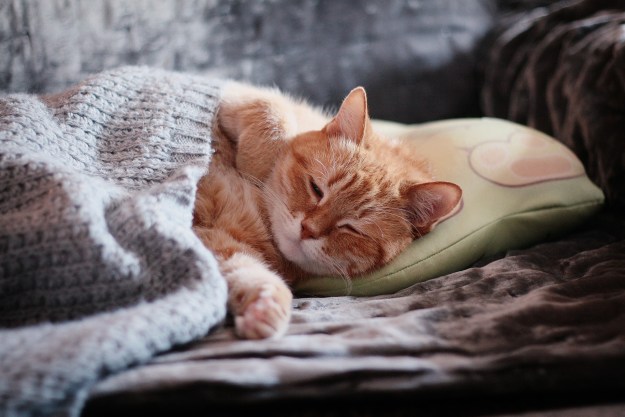If your cat has ever gone missing, then you’ve experienced the awful feeling that many pet owners know too well. Cats have a way of disappearing even when safely inside the house, and you can spend many stressful hours searching for them. Cat trackers can help solve that issue. By attaching a device to your cat’s collar, you can monitor and identify his location. A cat tracker can help you make sure your cat is always safely back in the house each night, and it can be a lifesaver if he ever strays too far from home.
Consider investing in these three quality cat trackers — and in your peace of mind.
Cat Tailer
The Cat Tailer is a long-range Bluetooth tracker with a 328-foot range that’s suitable for indoor and outdoor use. The Cat Tailer tag measures 1.08 inches in diameter and weighs just 0.28 ounces, so it attaches unobtrusively to your cat’s collar. Once your cat is wearing the tag, use the app on your phone to see where your cat is. The tag broadcasts a low-energy wireless homing beacon, and your smartphone will register the beacon and tell you approximately how far away your cat is. As you walk around and determine where the signal gets stronger, the app and tag can lead you to your cat. While this isn’t a GPS unit, it can guide you to your cat’s location.
The tag is waterproof and cat-proof, ensuring it works when you need it most. Its battery will last for six months, and there are no fees or subscriptions to worry about. The Cat Tailer app is free and updates information about your cat’s location once every second.
Tabcat Pet Tracker
The Tabcat Pet Tracker is a highly accurate pet-collar tracking system. It uses directional tracking technology for improved accuracy over GPS units. This radio frequency pet locator has won awards and has no subscription fees or other costs. The tags are small and splash-proof, and a durable case helps keep them safe. They run on lithium metal batteries, which are included. With multiple tags, you can easily track several cats — or use the system to find items that you often misplace, like keys.
Each tracking tag weighs just 5 grams, so your cat will barely feel any extra weight on his collar. The system has a range of up to 400 feet and works both indoors and outdoors. The tracking handset unit uses audio and visual cues to help you locate your pet. It can even activate a beeping signal on your cat’s collar tag. With repetition, you can use this to train and signal your cat that it’s time to come home.
Whistle Go Explore
The Whistle Go Explore unit provides real-time location tracking, no matter where your cat gets to. It uses an AT&T nationwide network and Google Maps for GPS tracking that lets you pinpoint your cat’s location. The unit tracks your cat’s movements every 15 seconds, so if he goes missing or roaming through the neighborhood, you can find him.
Whistle Go Explore has other benefits, too. It can monitor your cat’s health and behavior and alert you about potential health issues. With a subscription, you can chat with a vet through the app. This cat GPS tracker chip also features a built-in nightlight. The trackers are available in three colors, so you can choose one that complements your cat’s collar. Whistle Go Explore service does require a subscription that’s $7.95 per month for a year or $6.95 per month for two years.
Recommended for pets weighing 8 pounds or more, Whistle Go Explore is an option for larger cats.
Choosing the best cat locators
A cat locator can help you monitor your cat’s location and bring him home safely again. These products offer you reassurance and peace of mind, and they can save you lots of time looking for your cat.
When choosing the best cat locator, think about how you’ll most often use it. If your cat tends to hang out in the yard and you need some help finding him within a smaller area, then a non-GPS locator may be best. If your cat wanders the neighborhood and you often find him multiple houses down, a GPS tracker with a longer range may suit you better. Take your time researching each product to ensure you make the best choice for your needs.
Editors' Recommendations
- Wondering why cats chirp? Fascinating reasons why your cat chirps at birds (and you)
- How to cat-proof your balcony before the unthinkable happens
- There’s a totally normal reason cats throw up after eating grass – here’s why
- Your cat trilling is actually a good thing – here’s why
- This video of a confused kitty discovering a cat water fountain is adorable


